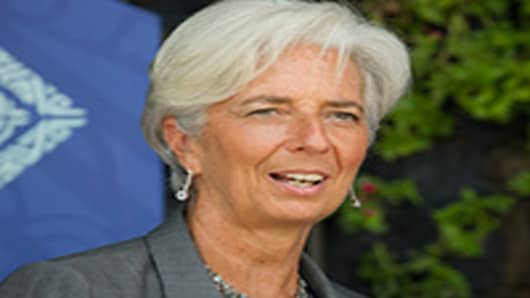I caught up with two leading ladies this weekend at the Annual IMF meeting in Tokyo. Each navigating different economic landscapes with different solutions.
IMF managing director Christine Lagarde, who is knee deep in the world's austerity and hopefully growth plans, and India's ICICI bank CEO Chanda Kochhar who is enjoying 20-plus percent growth as that country's second largest bank.
Lagarde finds herself at the nucleus of the globe, managing expectations for the troubled euro zone as well as the slowdown elsewhere in the world, most notably China. She seemed to back away from the harsh realities of "austerity all the time" in troubled Greece.
In fact, I noticed a difference in her demeanor toward Greece. She also said austerity on top of austerity doesn't work, and "the key is to get the country back on track."
"If we put upon them obligations that they simply cannot deliver on, because it's just too hard and too much -- the program is not going to be credible. So, our position is that we would rather have a program that is difficult but credible rather than a program that is going to be so difficult that it is not credible. It takes time," she said.
(Read More: Euro Divides, 'Violent Revolution' May Loom — Critic)
Whether that means she will agree, along with the European Central Bank (ECB) and the European Commission (EC) to provide the next tranche of money to Greece in the next few weeks remains to be seen. Greece has said the coffers will go dry by the end of November as the country will run out of money.


